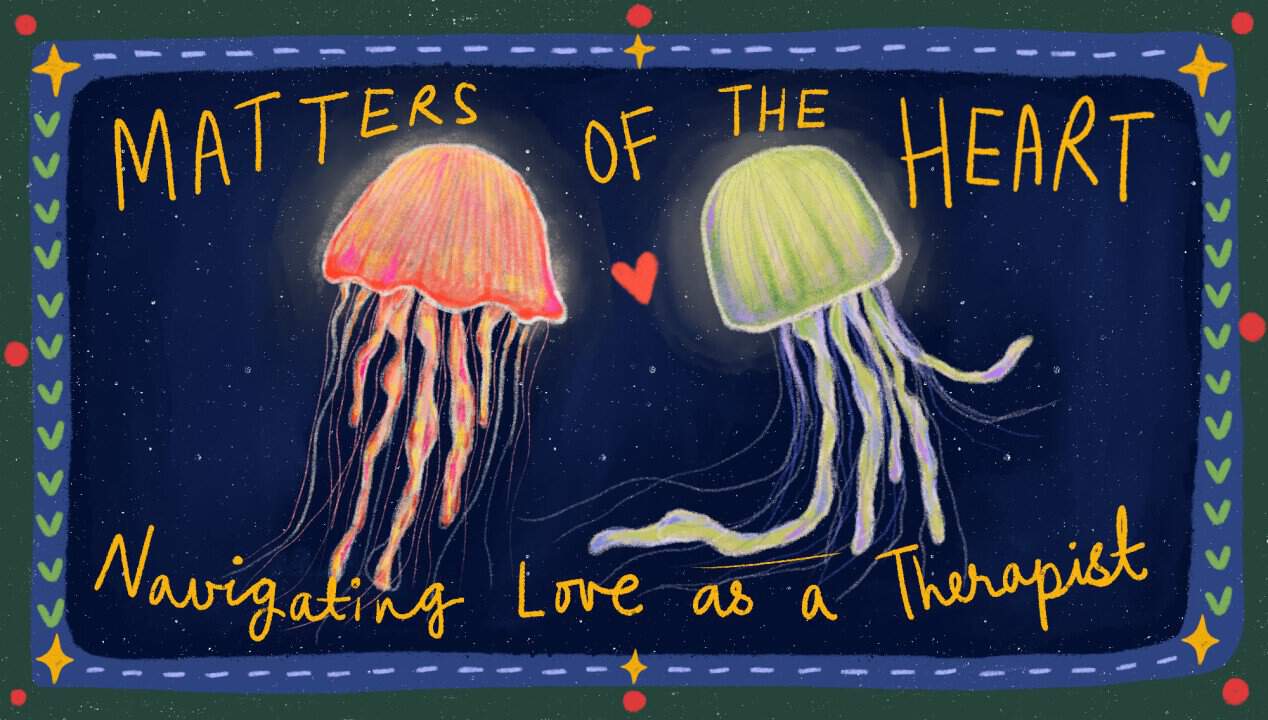
“You must be a great partner.”
After a serious session about relationship troubles, my client’s statement shocked a laugh out of me. It also got me thinking about our many assumptions and expectations about therapists. Especially about us in romantic partnerships.
Regardless of your therapeutic orientation, your job is deeply relational. Building trust with your client, helping them navigate messy human emotions, relationships, career challenges and everything in between. So if you’re trained to help people get their lives together…shouldn’t you have it together yourself? Romantic relationships should be a breeze….right?
Well…the reality is not so much the fairy tale you’d imagine. The truth is, therapists are human too, and their personal lives are often just as complex and imperfect as anyone else’s.
Even with all the knowledge about setting boundaries or being good listeners and communicators, we can’t be the “perfect partner” for one simple reason. The perfect partner doesn’t exist.
We’re all human beings bringing our vulnerabilities, insecurities and childhood wounds to our relationships. Your knowledge and skills don’t exempt you from the emotional complexities of romantic partnerships. Interestingly, research from the Gottman Institute suggests that while therapists might have an edge in recognizing conflict patterns, they’re still susceptible to the same pitfalls. Basically knowing what to do, doesn’t always mean doing it.
After a grueling day of therapy sessions, I come home seeking solace and understanding from my partner. I’ve exhausted my supply of empathy and want to be carried emotionally for a change. But here’s where it gets tricky – my partner isn’t my therapist. They’re not trained to hold space for me like I do for others. Expecting them to fill that role would be unfair and unrealistic. So, what’s a therapist to do?
As a therapist, I am trained to be attuned to others’ needs, but when it comes to my own, I may struggle to express or even recognize them. Even when I acknowledge my need for more support, I still hesitate to lean on my partner. I’m afraid I’m burdening them or failing to uphold the strong image I project in my professional life.
Part of it comes from this unspoken pressure, for me to maintain an aura of perfection in the relationship. To uphold the image of the strong, caring and empathetic partner. You’re a therapist you should know how to hold it together, right?
I also often catch myself slipping into therapist mode. Overanalyzing personal situations and dissecting my behavior and that of my partners. Let me paint you a picture – I am, sitting on the couch with my partner, feeling emotionally drained and craving a bit of TLC. My partner asks me what’s wrong, and before I know it, I’m launching into a full-blown analysis of my feelings, complete with Freudian references and Jungian archetypes. And then it hits me – I’m doing it again, I’m intellectualizing. I don’t need to provide the perfect answer or a scientifically backed explanation for why I’m feeling a certain way. All I really need is a hug and a pint of ice cream. It’s a reminder that sometimes, it’s necessary to turn off my therapist mode and just be present in the messy reality of emotions.
After a day filled with sessions, I sometimes feel depleted, with little energy left to engage in meaningful conversations or provide emotional support to my partner. I come home feeling like a wrung-out sponge, desperately needing to recharge. This state of exhaustion can lead to irritability, withdrawal, and a decreased ability to connect with my loved ones on an emotional level. There’s a lot of guilt that comes with that. I’ve spent the day being present for my clients offering empathy, support, and guidance. Why can’t I do the same for the people I care for so deeply?
These are important questions worth pondering when we consider the concept of disproportionate emotional labour. As therapists, we’re often the ones carrying the weight of our clients’ emotional burdens, but what about our own? Are we placing undue pressure on our partners to fulfill our emotional needs, because we’re accustomed to doing so for others? Are we taking on that emotional burden ourselves, slipping into therapist mode with our partners and attempting to manage their emotions on top of our own? Your mileage may vary when it comes to this because surprise, surprise we all bring our own unique baggage and relational trauma to our romantic relationships.
In conclusion, being a therapist in a romantic relationship is a complex dance of expectations, emotions, and self-awareness. It’s about finding the balance between professional expertise and personal vulnerability, and recognizing that perfection is not the goal – authenticity is. So let’s embrace our imperfections, lean on our partners for support when we need it, and above all, prioritize our own emotional well-being. After all, we’re only human, and sometimes, a good laugh and a pint of ice cream are all we need to navigate the ups and downs of love.

